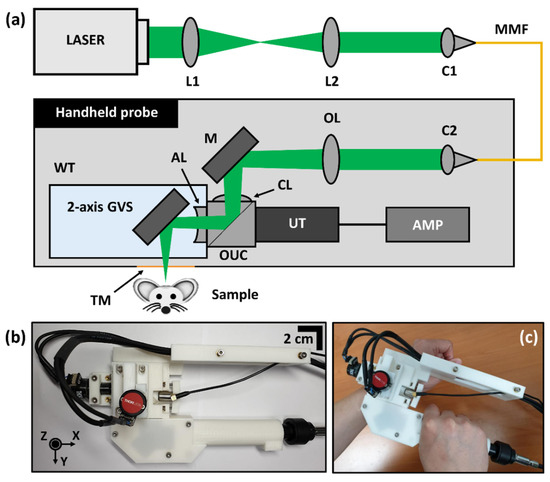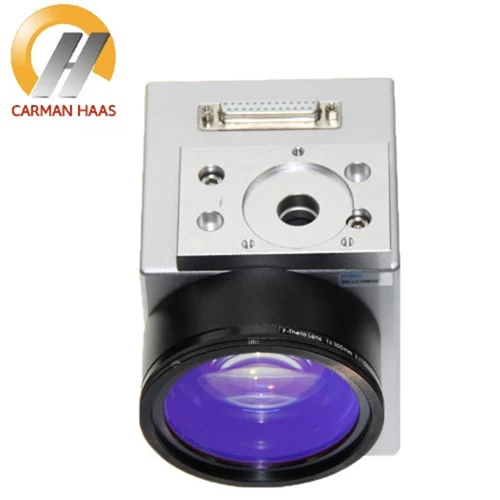Exactly How a Galvanometer Scanner Boosts Performance in Laser Scanning Technologies
The assimilation of galvanometer scanners in laser scanning modern technologies represents a critical innovation in precision engineering. By helping with fast and precise modifications of laser beam instructions, these devices dramatically improve functional efficiency throughout various applications, from medical imaging to commercial engraving. The underlying electro-magnetic mechanisms, coupled with innovative comments systems, make certain real-time control and boosted accuracy. Nevertheless, as sectors progressively demand higher efficiency criteria, the concern occurs: what future technologies might even more raise the capacities of galvanometer scanners in this evolving landscape?
Understanding Galvanometer Scanners
A galvanometer scanner is a sophisticated tool that leverages electromagnetic concepts to attain precise angular motion of mirrors or various other reflective surfaces. These scanners run through the communication of an electrical existing and a magnetic area, enabling fast and precise placing. This technology is vital in applications calling for high-speed scanning, such as laser inscription, optical interaction, and medical imaging.

Galvanometer scanners are commonly defined by their fast feedback times and high angular resolution, making them ideal for applications that demand rapid motions and exact placing. Their dependability and efficiency make them a vital part in contemporary laser scanning innovations, contributing significantly to innovations in different fields, including manufacturing, healthcare, and telecoms.
Device of Laser Beam Control

The control system depends on closed-loop comments systems that constantly keep track of the light beam's setting. The signals from optical sensors give real-time information to the control system, enabling rapid adjustments to maintain precision. This is vital in applications where even mild discrepancies can compromise the top quality of the check or engraving.
In addition, the galvanometer's feedback time is extremely important; high-speed motors make it possible for swift motions, ensuring that the laser beam of light can rapidly trace complex patterns or carry out elaborate operations. The combination of electronic signal handling additionally enhances the responsiveness and precision of the galvanometer scanner. In general, the system of laser beam of light control via galvanometer scanners exemplifies the blend of advanced engineering and innovation, yielding high-performance end results in laser scanning applications.
Benefits of Enhanced Precision
Boosted accuracy in laser scanning innovations supplies considerable advantages across different applications, from commercial manufacturing to medical procedures. The combination of galvanometer scanners permits extremely exact light beam positioning, which is vital for tasks requiring thorough detail. This enhanced accuracy guarantees that the laser can my blog target specific areas with minimal inconsistency, causing remarkable high quality end results.
In industrial contexts, precise laser scanning causes enhanced product uniformity and lowered product waste. Components produced with high precision are less most likely to require rework, therefore improving efficiency and lowering operational prices. In a similar way, in medical applications, the accuracy of laser treatments can dramatically influence patient results. In laser surgical treatment, specific targeting lessens damages to bordering tissues, leading to quicker recovery times and less complications.
Furthermore, improved accuracy assists in sophisticated applications such as 3D imaging and microfabrication, where also minute errors can cause considerable errors. By giving trustworthy and repeatable laser positioning, galvanometer scanners add to the general effectiveness and performance of laser systems. In summary, the advantages of boosted accuracy not just boost operational performance but likewise boost the criteria of high quality and safety in different dig this industries.
Applications in Various Industries
The convenience of galvanometer scanners in laser scanning innovations expands across multiple industries, each gaining from the accuracy they supply. In the clinical area, these scanners are critical in applications such as laser surgical treatment and imaging, enabling extremely accurate targeting of cells while decreasing damage to bordering areas - galvanometer scanner. Their fast feedback and great resolution are important in producing top quality outcomes
In the production sector, galvanometer scanners improve procedures like laser inscription and cutting. Their ability to swiftly route laser light beams onto surfaces enables effective manufacturing lines, enhancing rate and accuracy in developing elaborate styles or components.
The automotive market also profits from galvanometer innovation for quality control and assessments (galvanometer scanner). By using high-speed scanning, manufacturers can find problems in products or assemblies, guaranteeing that items satisfy strict requirements
Moreover, in the entertainment sector, galvanometer scanners are utilized in laser light programs and display screens, using dynamic visual experiences with specific control over laser motions.
Future Patterns in Laser Scanning
Arising innovations are poised to transform the landscape of laser scanning, with galvanometer scanners at the forefront of this transformation. As markets increasingly demand accuracy and efficiency, the advancement of galvanometer technology will certainly drive substantial improvements in laser scanning applications.
Future patterns indicate an expanding assimilation of synthetic knowledge and machine learning algorithms, which will certainly improve data processing capabilities and automate decision-making in real-time. This synergy will enable much more innovative evaluation of scanned data, bring about boosted precision in see it here applications such as 3D modeling and independent navigation.
In addition, the miniaturization of elements and the growth of innovative materials will certainly contribute to lighter, more mobile laser scanning systems. This transportability will expand the reach of laser scanning modern technologies into previously inaccessible settings, such as remote terrain and intricate building areas.
The increase of augmented truth (AR) and virtual reality (VR) applications will certainly additionally form the future of laser scanning. By incorporating galvanometer scanners with AR and VR, customers will certainly gain from immersive experiences that enhance visualization and job preparation.
Verdict
In verdict, galvanometer scanners play a pivotal role in optimizing laser scanning modern technologies through their exact control of light beam instructions and rapid angular modifications. The combination of advanced comments systems and optical sensors substantially boosts functional speed and precision, leading to boosted results in applications such as laser engraving and medical imaging. As sectors significantly adopt these technologies, the recurring innovations in galvanometer scanner designs are expected to further boost performance standards and widen application opportunities.
The integration of galvanometer scanners in laser scanning modern technologies represents a pivotal advancement in accuracy design. On the whole, the system of laser light beam control via galvanometer scanners exhibits the blend of advanced engineering and modern technology, generating high-performance end results in laser scanning applications.
By giving repeatable and reliable laser positioning, galvanometer scanners contribute to the overall effectiveness and performance of laser systems.The convenience of galvanometer scanners in laser scanning modern technologies extends across several sectors, each profiting from the accuracy they supply.In conclusion, galvanometer scanners play a crucial duty in maximizing laser scanning innovations through their exact control of light beam instructions and quick angular changes.